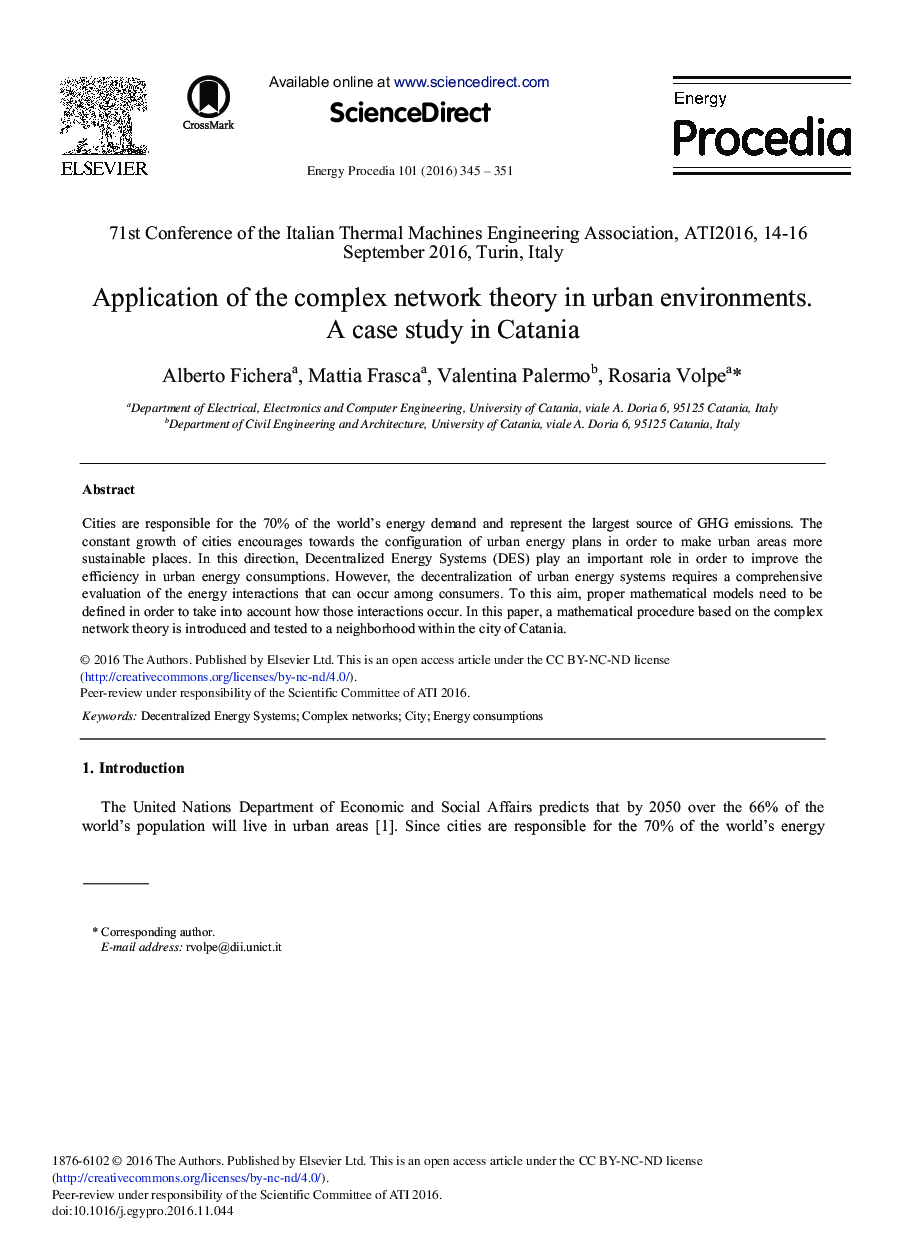| Article ID | Journal | Published Year | Pages | File Type |
|---|---|---|---|---|
| 5446472 | Energy Procedia | 2016 | 7 Pages |
Abstract
Cities are responsible for the 70% of the world's energy demand and represent the largest source of GHG emissions. The constant growth of cities encourages towards the configuration of urban energy plans in order to make urban areas more sustainable places. In this direction, Decentralized Energy Systems (DES) play an important role in order to improve the efficiency in urban energy consumptions. However, the decentralization of urban energy systems requires a comprehensive evaluation of the energy interactions that can occur among consumers. To this aim, proper mathematical models need to be defined in order to take into account how those interactions occur. In this paper, a mathematical procedure based on the complex network theory is introduced and tested to a neighborhood within the city of Catania.
Related Topics
Physical Sciences and Engineering
Energy
Energy (General)
Authors
Alberto Fichera, Mattia Frasca, Valentina Palermo, Rosaria Volpe,
